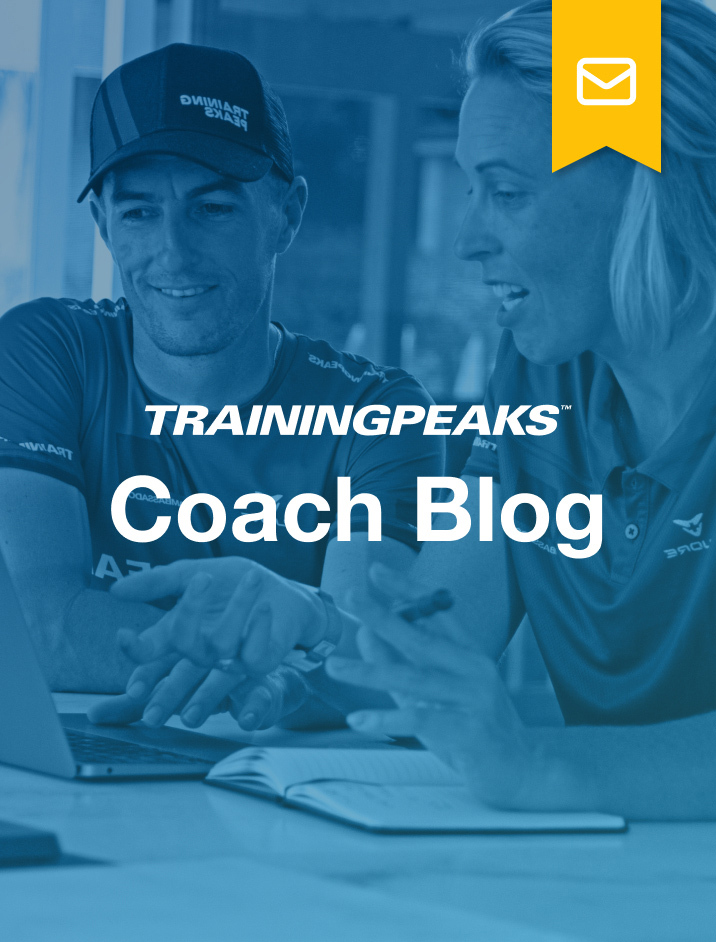Branding can be a powerful tool in the development of your coaching business. It can increase your recognition and successfully differentiate you from your competitors. An effective brand can also communicate your value proposition, clarify your market niche and help you demonstrate your expertise to potential clients. However, to build a successful brand you need to answer four questions.
1. Who do I serve?
In other words, who are your clients and who do you want to have as clients? Many coaches make the mistake of casting a wide net that includes as many potential customers as possible. Avoid this mistake by focusing on a relatively small market niche where you can offer unique value and expertise. For example, as a cycling coach, I specialize in power development. Specifically, I work with competitive cyclists and multisport athletes who want to increase power on the bike.
You can specialize in a variety of areas such as nutrition, weight loss, peaking for key events, bike fit and position, running mechanics, race tactics, performance testing, injury recovery and technical skill development (e.g., swim technique, bike handling). You can also specialize in specific athlete types such as Masters, juniors, elite racers, newbies, men, women, athletes with chronic injuries or diseases, and Clydesdale and Athena triathletes. For instance, you can build a successful coaching business that helps female athletes achieve their ideal performance weight. Likewise, you may want to focus on helping juniors improve their race tactics and performance, or helping triathletes improve their swim technique. The key is to make sure you are clear about your market niche and the value and expertise you can offer to this niche.
2. What value do I provide?
This question is arguably the most important because it refers to your value proposition, which is what your clients can do because of you. For example, if you are a swim coach, what is it that your clients can do because of your services? If you sell sports nutrition products, what do these products enable your customers to do? What value do you provide as a triathlon coach for Clydesdales and Athenas? You must have a very clear and concise answer to this question if you are going to develop a successful brand. For example, “I help female endurance athletes achieve their ideal performance weight” or “I help explosive sports athletes recover from injury more quickly and effectively” are well-articulated value propositions. Other effective examples include, “I get multisport athletes on the podium by reducing their transition times” and “I improve athlete performance by increasing mental strength.”
3. How do I help my customers achieve this value?
Specifically, what products and/or services do you offer that allow your customers to obtain the aforementioned value? For example, I provide value to my cycling and multisport athletes through my publications, webinars, training plans and the one-on-one coaching process. A sports nutrition retailer may offer a variety of foods, beverages and supplements designed to improve athletic performance. A former athlete turned professional speaker may offer speeches, books and CDs designed to motivate audience members and inspire them to greater performance. Make sure you are clear about how you achieve your value proposition.
4. How does this differ from my competitors?
In other words, what is your competitive advantage? Why should a potential customer buy your goods and services instead of those offered by a competitor? What tangible and intangible steps do you take to exceed the value provided by your competitors? How is what you do significantly different from what other athletic coaches and trainers do? These are not easy questions to answer, but it is important to be clear about how your products and services contrast from the competition.
Simply stated, you cannot build a successful brand if you cannot answer these questions in a concise, specific manner. You may struggle a bit as you attempt to respond to each query but once you are clear about your marketing niche, value proposition, product line and competitive advantages, you will have a brand identity that sets you apart from your competition.


